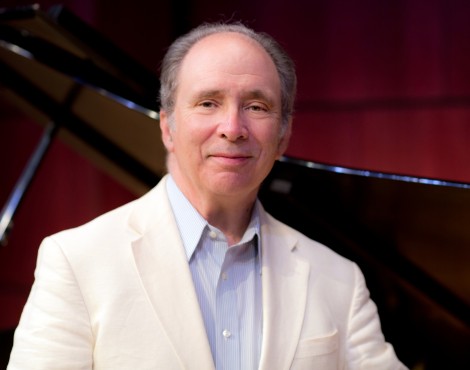Full story by Karin Dienst, Office of Communications, available here.
Michael Pratt, conductor of the Princeton University Orchestra and director of the Program in Music Performance, is one of four recipients of this year’s President’s Award for Distinguished Teaching. Awarded at the Commencement ceremonies, this recognition was established in 1991 through a gift by Princeton alumni Lloyd Cotsen of the Class of 1950 and John Sherrerd of the Class of 1952 to recognize excellence in undergraduate teaching by Princeton faculty members. Each winner receives a cash prize of
This year celebrates Pratt’s 41st anniversary at Princeton. “As conductor of the Princeton University Orchestra, he has profoundly impacted well over a thousand students, the majority of whom worked with him throughout their undergraduate careers,” noted a colleague in the music department.
As founder and director of the Program in Music Performance, Pratt is recognized as creating “one of the finest music programs anywhere in the country,” said a colleague.
Pratt established the partnership with the Royal College of Music in London and founded the Richardson Chamber Players, which “provided the opportunity for students to play chamber music on the stage at Richardson with their teachers, a rare experience indeed,” noted a colleague.
A recent alumnus remarked, “For so many students at Princeton, my former self included, Michael is a teacher, a mentor and the perfect embodiment of benevolence.”
A current student said, “Out of all the incredible opportunities and experiences that Princeton University has afforded me, that which I most greatly treasure is the privilege to play timpani under the baton of Maestro Michael Pratt.”
Students in the certificate program commended Pratt for helping them develop as singers. “[The program] allowed me to take voice lessons free of cost and participate in opera productions for credit [through MUS 214],” said a student who went on to earn a master’s at a top conservatory. A former student who is now an opera singer said, “He was an important mentor for me throughout my time [at] Princeton and guided me through my concentration in music, my extracurricular performance activities, as well as how I might go out into the world as a professional singer.”
Congratulations to Maestro Pratt!

